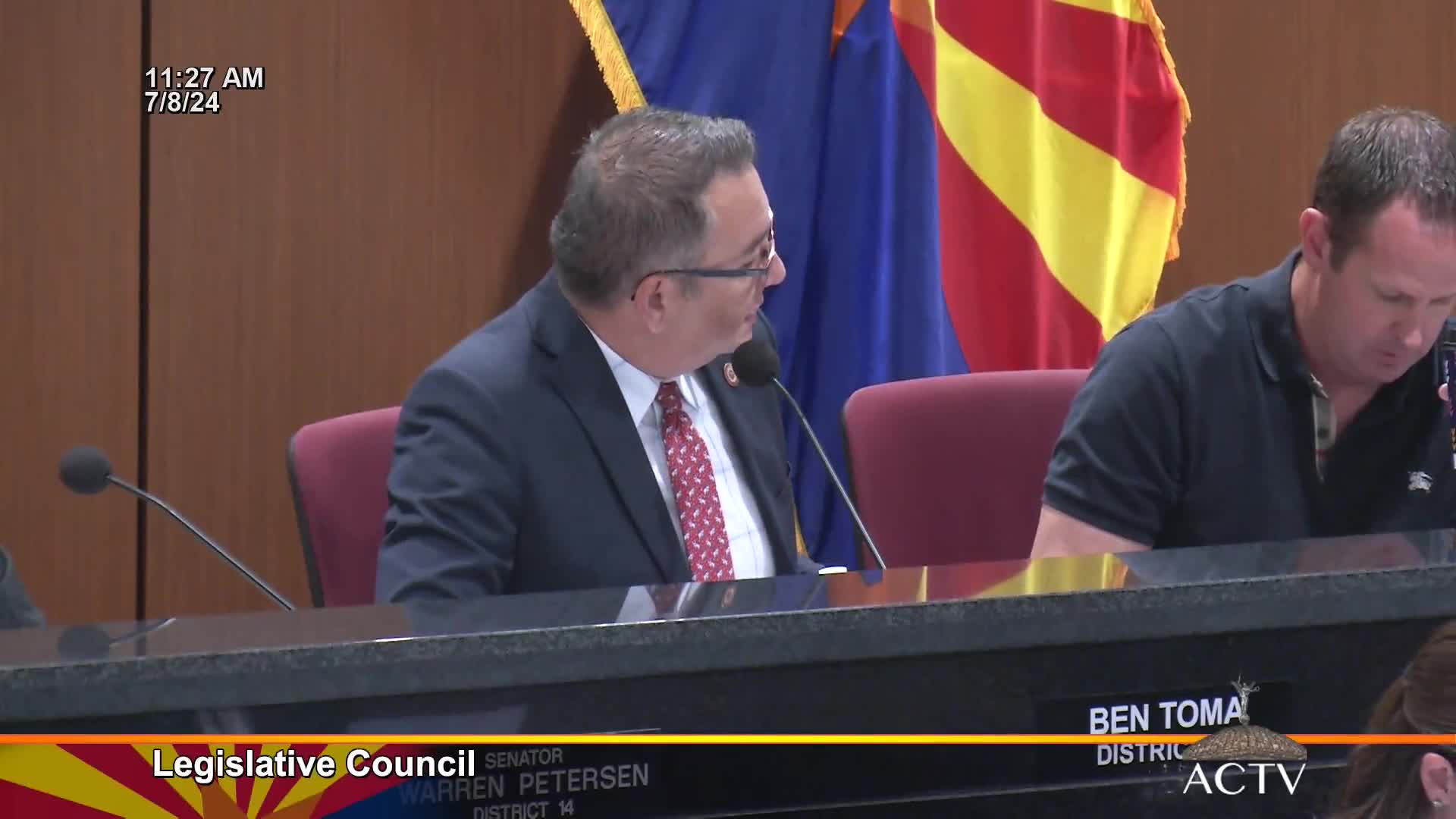Senators clash over language defining non citizens
July 08, 2024 | Legislative Council, Interim Committees, Committees, Legislative, Arizona

This article was created by AI summarizing key points discussed. AI makes mistakes, so for full details and context, please refer to the video of the full meeting. Please report any errors so we can fix them. Report an error »

In a recent government meeting, discussions centered around the terminology used in immigration legislation, particularly the term \"alien.\" Senator Martinez emphasized the importance of distinguishing between various categories of non-citizens, including permanent residents, tourists, and students, arguing that lumping them all together under the term \"alien\" creates confusion and misrepresents their legal status.
Martinez pointed out that while \"alien\" is defined in federal law, the Supreme Court has increasingly favored the term \"non-citizen\" to describe individuals who are not U.S. citizens. He argued that language matters significantly in shaping perceptions and urged lawmakers to consider the implications of their word choices. He expressed concern that the term \"alien\" evokes a sense of otherness, which could hinder understanding and compassion in immigration discussions.
The conversation also touched on a proposed state crime that would penalize individuals classified as \"aliens\" for entering the country outside designated ports. Martinez questioned whether this definition could inadvertently criminalize lawful non-citizens, such as those holding work or student visas. He clarified that, in his experience, the term \"alien\" is not typically applied to individuals with legal status in the U.S.
As the meeting progressed, representatives debated the implications of the proposed amendments and the definitions used in the legislation. The discussions highlighted the ongoing complexities and sensitivities surrounding immigration terminology and its impact on policy-making. The meeting concluded without a resolution on the proposed amendments, leaving the future of the legislation uncertain.
Martinez pointed out that while \"alien\" is defined in federal law, the Supreme Court has increasingly favored the term \"non-citizen\" to describe individuals who are not U.S. citizens. He argued that language matters significantly in shaping perceptions and urged lawmakers to consider the implications of their word choices. He expressed concern that the term \"alien\" evokes a sense of otherness, which could hinder understanding and compassion in immigration discussions.
The conversation also touched on a proposed state crime that would penalize individuals classified as \"aliens\" for entering the country outside designated ports. Martinez questioned whether this definition could inadvertently criminalize lawful non-citizens, such as those holding work or student visas. He clarified that, in his experience, the term \"alien\" is not typically applied to individuals with legal status in the U.S.
As the meeting progressed, representatives debated the implications of the proposed amendments and the definitions used in the legislation. The discussions highlighted the ongoing complexities and sensitivities surrounding immigration terminology and its impact on policy-making. The meeting concluded without a resolution on the proposed amendments, leaving the future of the legislation uncertain.
View full meeting
This article is based on a recent meeting—watch the full video and explore the complete transcript for deeper insights into the discussion.
View full meeting
